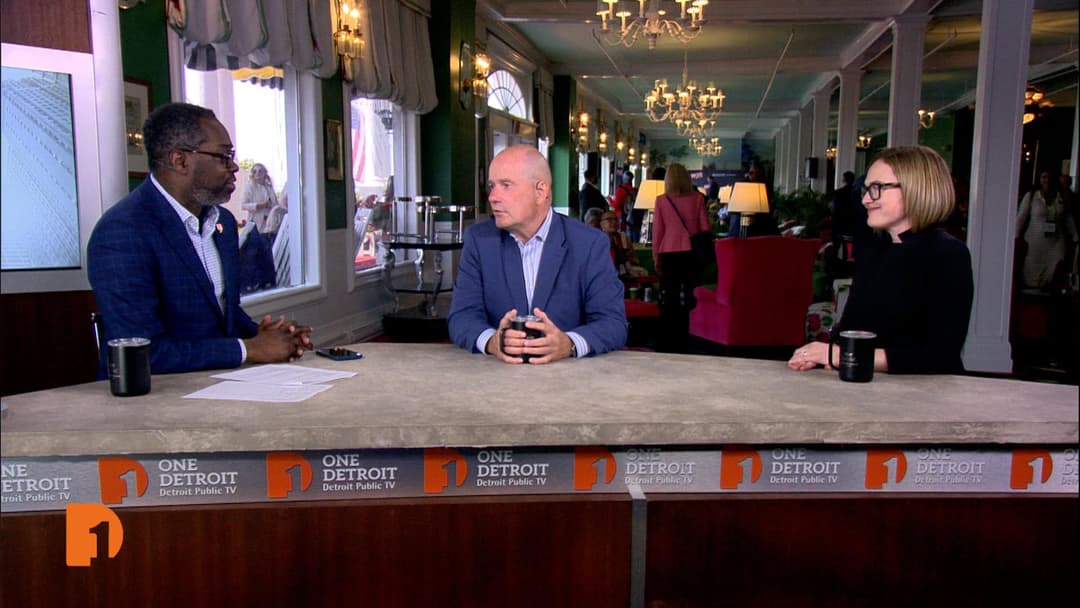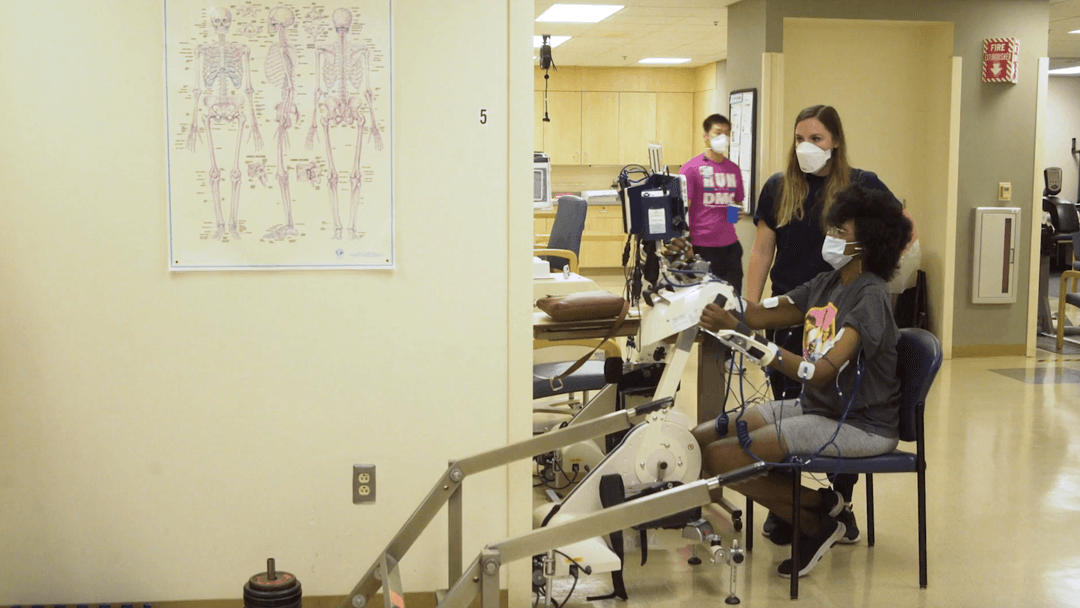Michigan’s Childcare Challenges Have Displaced Women From the Workforce. Will New Legislation Help Them Return?
Sep 22, 2022
All across Michigan, a shortage of childcare availability and rising childcare costs have persisted, leaving some working women with few options other than to stay home and forego a job for parenthood. Nearly 1.1 million women left the workforce from February 2020 to January 2022, and a disproportionate number of women — 23% compared to 13% of men — considered leaving their careers for motherhood.
RELATED: The impact of women leaving the workforce during the COVID-19 pandemic
RELATED: Check to see if you’re eligible for childcare assistance in Michigan
Michigan Gov. Gretchen Whitmer’s latest childcare announcements have expanded the state’s efforts to re-strengthen the childcare industry, but how will those efforts roll out across the state? And what other changes does Michigan need to make childcare more affordable and accessible?
Guest host Trudy Gallant-Stokes talks with Michigan Women’s Commission Commissioner Charity Dean and InForum CEO Terry Barclay, about the decline of women in the workforce, the impact of childcare, and how Gov. Whitmer’s latest childcare legislation may help working women and their families.
This story comes from One Detroit’s Future of Work Virtual Town Hall, “Women in the Workforce.” Watch the full town hall here.
Full Transcript:
Trudy Gallant-Stokes, Guest Host, Future of Work Town Hall: While women gained 188,000 thousand jobs in January 2022, they are still short by more than 1.8 million jobs lost since February 2020. But in August, Governor Whitmer passed the free childcare expansion, making 40% of Michigan families eligible for free or low-cost childcare. So that’s where we’ll start the conversation today. I’m a third-generation working woman, and now I have two daughters who are working women. One is a new mom. And I just find it extremely frustrating that we seem like we keep having to have these conversations.
How do the two of you feel? Does it feel like two steps forward and then one step back? Are we making any progress?
Terry Barclay, President & CEO, Inforum: The causes for that are many. But I do think that childcare is a central concern for men and women in the workforce. The stresses on families, whether they could afford childcare or not, even in many cases when they could afford childcare, there was sort of a lack of stability because of the pandemic.
Terry Barclay: And they would not know from day to day whether those services were going to be available. So there’s no question that if we want to solve the talent shortage, we need to look at what services are we providing to support healthy families in Michigan.
Trudy Gallant-Stokes: Well, I guess it is encouraging that we do have this bipartisan effort now and been announced by Governor Whitmer and hopefully this providing low-cost childcare. And 40% of Michiganders, if they qualify, that will make a huge difference, will it not, Charity?
Charity Dean, Commissioner, Michigan Women’s Commission: We still have so much, so much to go. Women unemployment rate is still higher than men’s unemployment rate. But the first step is saying, how are we looking at who’s eligible for assistance for childcare? Right. And how do we make sure that even the working poor have access to this great resource?
I think, as a Michigan Women’s Commissioner, we spent a lot of time when we were first when the governor was first elected. We went around the state and we held conversations for women. And this is pre-pandemic. And we said, what are your issues? We had conversations in the U.P., we had conversations in Grand Rapids. I hosted one in Detroit. And, back then the Michigan Women’s Commission was placed in civil rights.
And as a result of all these conversations, what we realized and what we know, what we’re talking about today is that women’s issues are economic issues. And so in order to help solve that problem, the Michigan Women’s Commission actually moved and now we’re placed in LEO. And the Department of Labor and Economic Opportunity. And the goal is how do we solve for these very critical problems that are impacting half of our population? Right. And so the first thing is this bipartisan effort to help expand eligibility for childcare. And I’m sure later we’re going to talk about our Tri-Share program as well, which is another great tool to help women.
Trudy Gallant-Stokes: So Terry, you obviously are communicating directly with top management and companies. What do you hear from them and what do you hear from those people who have just decided, I can’t keep this corporate job. Do they want onsite childcare? Do they want vouchers? What are they looking for?
Terry Barclay: Well, I think oh, gosh, Trudy. There’s layers to that question, right? So, first of all, there’s no question, Charity mentioned it. Women’s leadership is good for the economy. And there’s study after study that shows that there was a multi-university study that was published in April of 2021 that looked at 150 companies, and they saw that after women joined, top management teams, firms became more open to change, less open to untoward risk.
And tended to shift away from a merger and acquisition focus to strategies that were more about investing and growing the businesses and growing the jobs, growing opportunities for employees. And growing through R&D. So, we see that women’s participation at all levels of companies makes a positive difference. There’s a lot of research there, but we have a ways to go. You know, Inforum has for 20 years now published the Michigan Women’s Leadership Report. Where we look at the 100 largest companies that are headquartered in the state. And while there has been some progress for women in board positions.
Particularly at larger publicly held companies. I think one of the biggest takeaways is how slow that progress has been. And, to Charity’s point, how the inequities have just been persistent for all those years. The percentage of women of color on boards has not changed in 20 years. And so it’s like it’s kind of like, what’s that about? So there’s work to be done. And I think that as companies, we see high level of interest in companies on the part of companies and sort of unpacking this and figuring out what they can do to make the change.
And so one of the things that has really emerged from the talent shortage is that women want more from their employers now in terms of workplace culture and investment in employee wellness and family wellness. And when they don’t see it, they move on. Or they deselect. And secondly, they want work that’s meaningful to them.
So we’re starting to see data that says that top talent, the workers we need to power our economy in Michigan, are looking for companies that are making those investments in childcare support that will help them manage all of their lives so that they can be present at work.
Stay Connected:
Subscribe to One Detroit’s YouTube Channel & Don’t miss One Detroit Mondays and Thursdays at 7:30 p.m. on Detroit PBS, WTVS-Channel 56.
Catch the daily conversations on our website, Facebook, Twitter @DPTVOneDetroit, and Instagram @One.Detroit
View Past Episodes >
Watch One Detroit every Monday and Thursday at 7:30 p.m. ET on Detroit Public TV on Detroit Public TV, WTVS-Channel 56.
Stay Connected
Subscribe to One Detroit’s YouTube Channel and don’t miss One Detroit on Thursdays at 7:30 p.m. and Sundays at 9 a.m. on Detroit PBS, WTVS-Channel 56.
Catch the daily conversations on our website, Facebook, Twitter @OneDetroit_PBS, and Instagram @One.Detroit
Related Posts
Leave a Reply
Your email address will not be published. Required fields are marked*




























